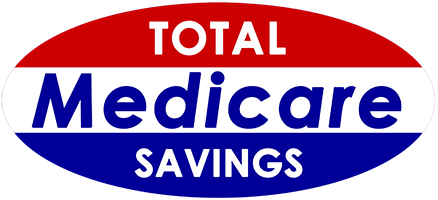MEDICARE ADVANTAGE PLAN
Everyone’s Needs Are Different & We Will Help You Find The Plan That’s Right For YOU—FREE OF CHARGE!
Medicare Advantage
A Medicare Advantage Plan is a type of Medicare health plan offered by a private company that contracts with Medicare to provide you with all your Part A and Part B benefits. Medicare Advantage Plans include Health Maintenance Organizations, Preferred Provider Organizations, Private Fee-for-Service Plans, Special Needs Plans, and Medicare Medical Savings Account Plans. If you’re enrolled in a Medicare Advantage Plan, Medicare services are covered through the plan and aren’t paid for under Original Medicare. Most Medicare Advantage Plans offer prescription drug coverage.
How do Medicare Advantage Plans work?
Medicare Advantage Plans, sometimes called “Part C” or “MA Plans,” are offered by private companies approved by Medicare. If you join a Medicare Advantage Plan, you still have Medicare. You’ll get your Medicare Part A (Hospital Insurance) and Medicare Part B (Medical Insurance) coverage from the Medicare Advantage Plan and not Original Medicare.
Medicare Advantage Plans cover all Medicare services
Medicare health plans provide Part A and Part B benefits to people with Medicare who enroll in these plans, which include Medicare Advantage Plans, Medicare Cost Plans, Demonstration/Pilot Programs, and Programs of All-inclusive Care for the Elderly (PACE).
Medicare Advantage Plans must follow Medicare’s rules
Medicare pays a fixed amount for your care each month to the companies offering Medicare Advantage Plans. These companies must follow rules set by Medicare.
However, each Medicare Advantage Plan can charge different out-of-pocket costs and have different rules for how you get services (like whether you need a referral to see a specialist or if you have to go to only doctors, facilities, or suppliers that belong to the plan for non-emergency or non-urgent care). These rules can change each year.
Costs for Medicare health plans
Find out what factors contribute to how much you pay out-of-pocket when you have a Medicare health plan.
Drug coverage in Medicare Advantage Plans
You usually get prescription drug coverage through the plan. In some types of plans that don’t offer drug coverage, you can join a Medicare Prescription Drug Plan.
You can’t have prescription drug coverage through both a Medicare Advantage Plan and a Medicare Prescription Drug Plan. If you’re in a Medicare Advantage Plan that includes drug coverage and you join a Medicare Prescription Drug Plan, you’ll be disenrolled from your Medicare Advantage Plan and returned to Original Medicare.
Medicare Supplement Insurance Plans
Medicare SolutionsMedicare Part D
Medicare offers prescription drug coverage to everyone with Medicare. If you decide not to join a Medicare Prescription Drug Plan when you’re first eligible, and you don’t have other creditable prescription drug coverage, or you don’t get Extra Help, you’ll likely pay a late enrollment penalty. To get Medicare drug coverage, you must join a plan run by an insurance company or other private company approved by Medicare. Each plan can vary in cost and drugs covered.
2 ways to get drug coverage
1. Medicare Prescription Drug Plan (Part D). These plans (sometimes called “PDPs”) add drug coverage to Original Medicare, some Medicare Cost Plans, some Medicare Private Fee-for-Service (PFFS) Plans, and Medicare Medical Savings Account (MSA) Plans.
2. Medicare Advantage Plan (Part C) (like an HMO or PPO) or other Medicare health plan that offers Medicare prescription drug coverage. You get all of your Medicare Part A (Hospital Insurance) and Medicare Part B (Medical Insurance) coverage, and prescription drug coverage (Part D), through these plans. Medicare Advantage Plans with prescription drug coverage are sometimes called “MA-PDs.” You must have Part A and Part B to join a Medicare Advantage Plan.
What drug plans cover
Each Medicare Prescription Drug Plan has its own list of covered drugs (called a formulary). Many Medicare drug plans place drugs into different “tiers” on their formularies. Drugs in each tier have a different cost.
A drug in a lower tier will generally cost you less than a drug in a higher tier. In some cases, if your drug is on a higher tier and your prescriber thinks you need that drug instead of a similar drug on a lower tier, you or your prescriber can ask your plan for an exception to get a lower copayment.
There are new plans for 2024 that you should be aware of.
You may be eligible for plans at $0 PREMIUMS!
